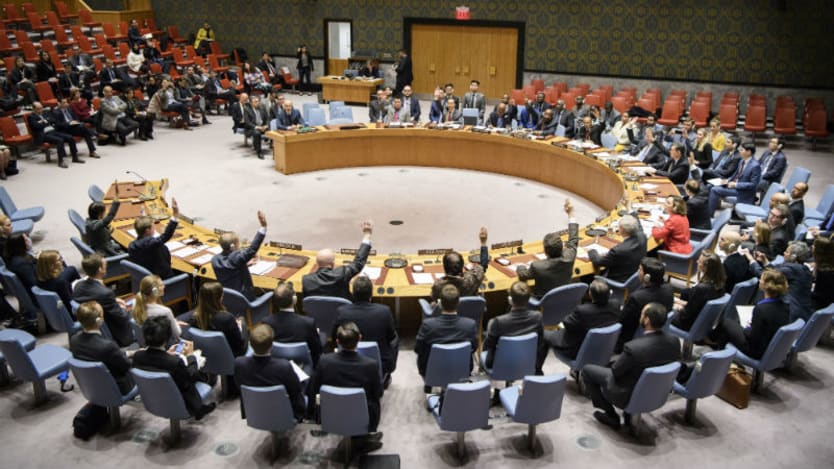Ceasefire set for eastern Ghouta, but humanitarian solution still out of reach

NEW YORK — A daily five-hour pause in fighting in the besieged area of eastern Ghouta, Syria, starts on Tuesday. But a senior humanitarian adviser at Médecins Sans Frontières warns that the move is unlikely to create safe, adequate humanitarian conditions for the approximate 400,000 people who have been trapped in the Damascus suburb.
Airstrikes and artillery strikes by the Syrian and Russian governments on the rebel-controlled area have killed more than 630 and wounded 3,300 people over the past week, according to MSF. The medical humanitarian organization notes that these figures are an underestimate, as the situation remains complex, fast moving and not all hospitals have been able to send regular reports.
Three medics have also died, and four have been wounded in the attacks on the hospitals partnering with MSF. There have also been reports of chlorine attacks on civilians, with the Syrian American Medical Society confirming that 16 patients were treated for symptoms of exposure to chemical compounds at one of the hospitals they support. This would be the 197th use of chemical weapons in Syria since the war started in 2011, according to SAMS.
“It is quite obvious there is an incredible increase of violence in the last week. It’s accelerated dramatically in the last four days alone,” said Michiel Hofman, a senior humanitarian adviser at MSF, speaking in a phone call with Devex shortly before the break in fighting was announced.
Russia’s ordering of a daily ceasefire and opening of a humanitarian corridor arrives after one of the most prolonged, devastating bombardments of Syria also destroyed four of the 10 hospitals MSF is supporting in eastern Ghouta. MSF is also supporting seven hospitals with donations of medical supplies.
United Nations Secretary-General António Guterres backed the U.N. Security Council’s recent resolution calling for a 30-day ceasefire, as he told the U.N. Human Rights Council last week, “eastern Ghouta cannot wait, it is high time to stop this hell on earth.” Bombings have continued since the one-day ceasefire was announced over the weekend.
“It [attacks on hospitals] is something that makes you feel very powerless,” said Hofman. He cautioned, meanwhile, that safe zones and humanitarian corridors can present unexpected traps for civilians and humanitarian personnel.
Previous ceasefires and openings of humanitarian corridors in eastern Aleppo, for example, can give people a chance to leave, but may also mean that they cannot easily claim protection as civilians. If half of eastern Ghouta’s sizeable population left quickly, it could place them in a vulnerable situation elsewhere. Other civilians might also not be able to flee, for various reasons.
“We do not know the factors why you can't leave. Maybe there is no money to pay the bribe. It’s part of the rhetoric. The leaflets have been dropped, telling people to use the humanitarian corridor,” he said.
“But from MSF, we find it is difficult for humanitarians to actually call for that because in the end how these type of safe zones work out are not decided at the humanitarian, but the political level. We need to have it in the back of our minds. There is no humanitarian solution here.”
Medical teams at hospitals in eastern Ghouta have been working flat-out for more than a week, nervous for their own protection as they treat civilians and conduct orthopedic surgery, abdominal and vascular surgery, and neurosurgery. The sudden influx of wounded victims has also pushed hospitals to divert attention away from people suffering from cancer, respiratory infections, and diabetes, Hofman says.
“It is quite a full-out attack. This is not just hospitals that have been hit, but residential buildings, playgrounds, and markets,” Hofman said.
“We are calling for protection of all civilian areas, including hospitals, rather than to say the hospitals can be safe zones but you can bomb everything else. The main concern for people is medical care, but for the general population it is also protection.”
Some surviving victims in destroyed hospitals have been transported to the remaining, still functional hospitals. In other cases, lack of security in the streets has made it impossible to transfer wounded people, a doctor and manager of a major field hospital told MSF in a Feb. 24 statement.
On Friday, women and children represented nearly 60 percent of the wounded and 48 percent of the deceased at the nine MSF-supported facilities which have been able to report.
“We cannot transfer any patients out of our hospital. Any person, on foot or in a car, in the streets, will surely die. We are even unable to refer patients that need intensive care to the Intensive Care Unit that is 5 kilometers away,” she said. “With so many patients coming it’s impossible — we are losing so many patients because of the shortages we have. Patients would have a chance if we could refer them 5 kilometres to the ICU, but with the intensity of the bombing we can’t.”
Search for articles
Most Read
- 1
- 2
- 3
- 4
- 5
